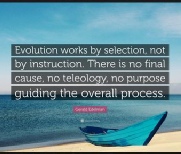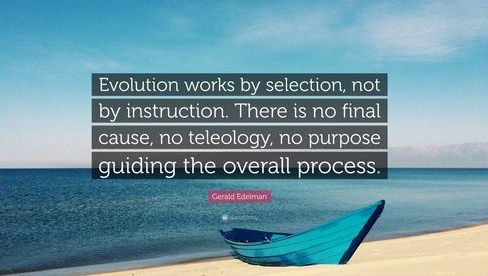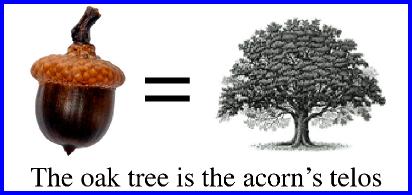



 NEXT
NEXT
 BACK
BACK
 Forum
Forum


Philosophical musings on Quanta & Qualia; Materialism & Spiritualism; Science & Religion; Pragmatism & Idealism, etc.




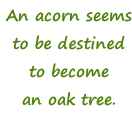
Who makes the selection?
Post 45. 07/08/2018 continued . . .
Natural versus Supernatural Teleology
Functions versus Goals
Throughout history, deep thinkers have produced various theories to explain the compelling “appearance” of design in nature6. Teleology : Aristotle's hierarchy of causes from First to Final, was presented as an “impersonal, undesigned, aspect of nature” equivalent to natural laws. Holism : Medieval meta-
In a 19th century mechanical metaphor, William Paley, described the designer of Nature as a watchmaker. But a more contemporary analogy might be to a computer programmer or game designer. The creators of software are not limited to the Genesis method of a priori, once-
Unlike the deterministic watch mechanism, in the game metaphor some things are left to chance, yet everything works together for a reason, a purpose, a telos. The ultimate intention of a human designer may be to make money, or offer enjoy-
Post 45 continued . . . click Next
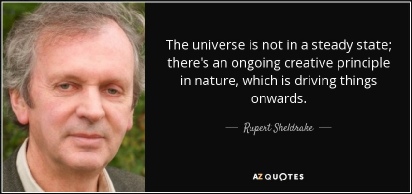
6. Theories of goal-
• Teleology
• Mereology
https://en.wikipedia.org/wiki/Mereology
• Orthogenesis
https://en.wikipedia.org/wiki/Orthogenesis
• Epigenesis
https://en.wikipedia.org/wiki/Epigenesis_(biology)
• Autopoiesis
https://en.wikipedia.org/wiki/Autopoiesis
• Systems Theory
https://en.wikipedia.org/wiki/Systems_theory
• Morphogenesis
https://en.wikipedia.org/wiki/Morphogenesis
7. Adaptive Systems :
“Interdependent entities forming an integrated whole that together are able to respond to environmental changes or changes in the interacting parts, in a way analogous to either continuous physiological homeostasis or evolutionary adaptation in biology”
https://en.wikipedia.org/wiki/Adaptive_system
8. Motive : Does God have emotional urges, like humans, that overwhelm the rational mind? Or does G*D create for no practical reason? My guess is that eternal/infinite, omniscient/ omnipotent deity lacks only one thing : imperfection. So creating space-
